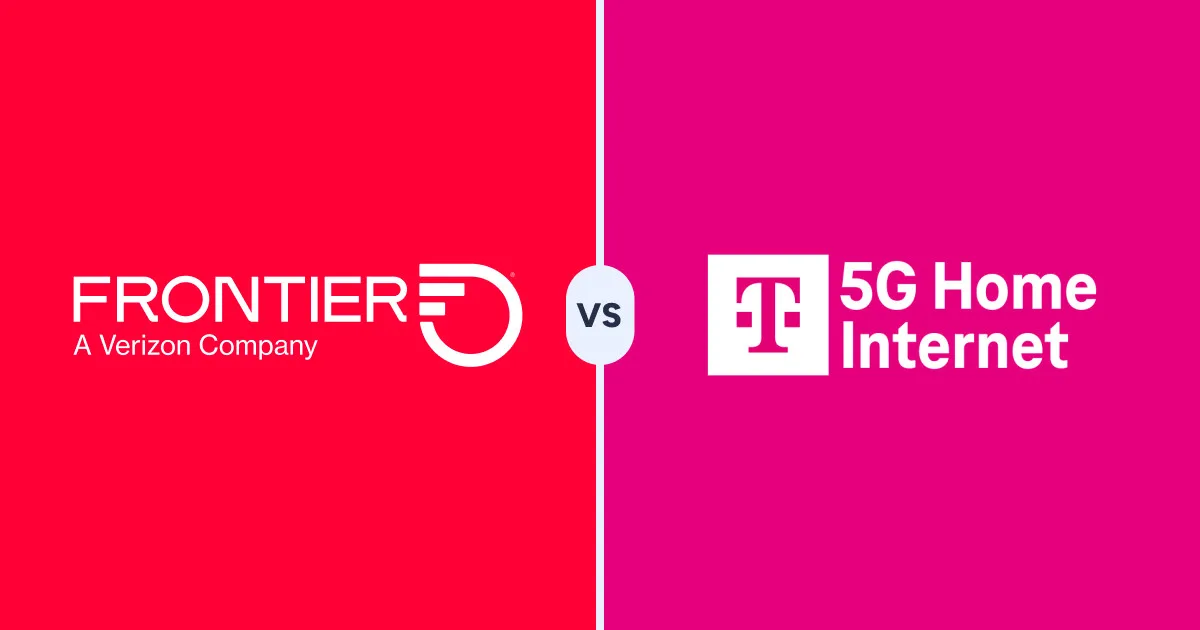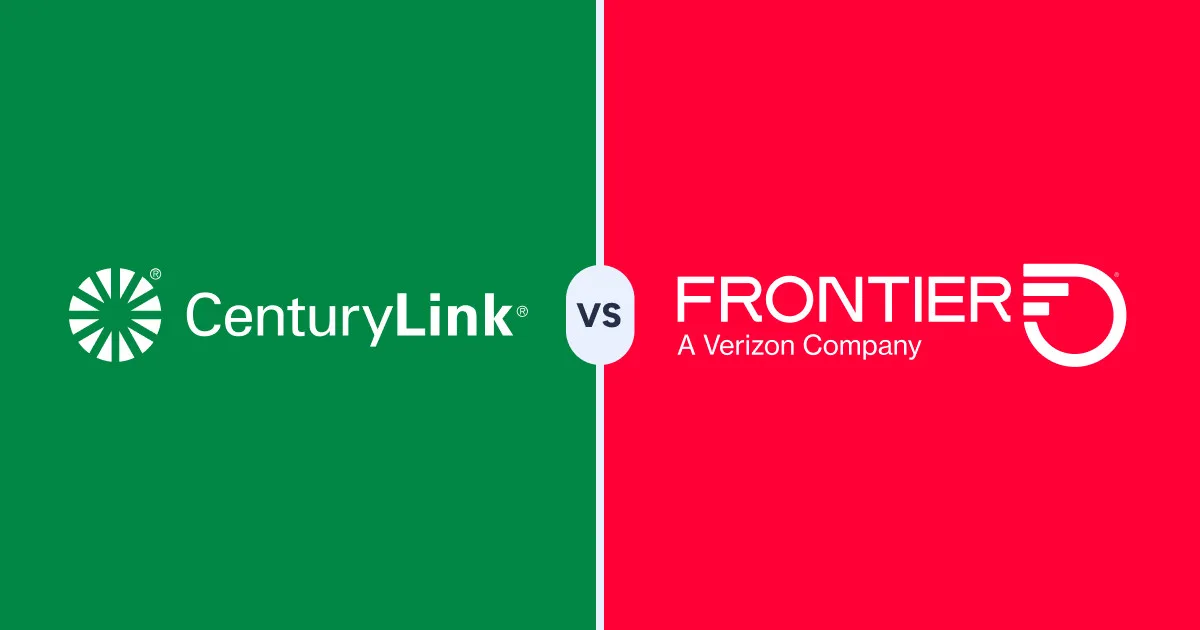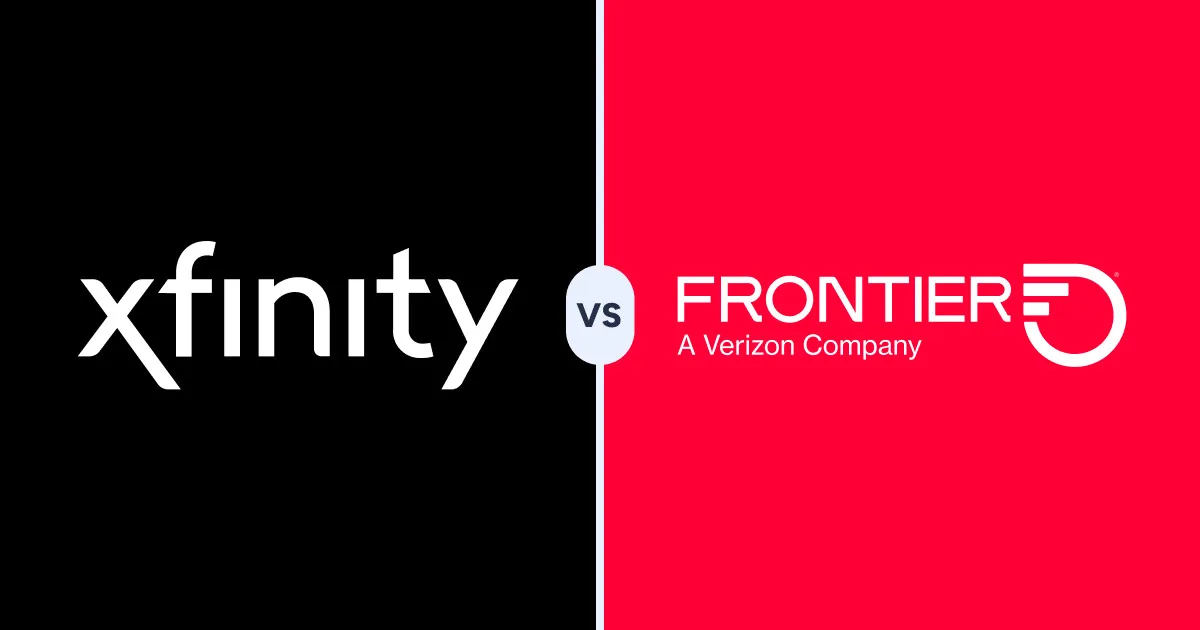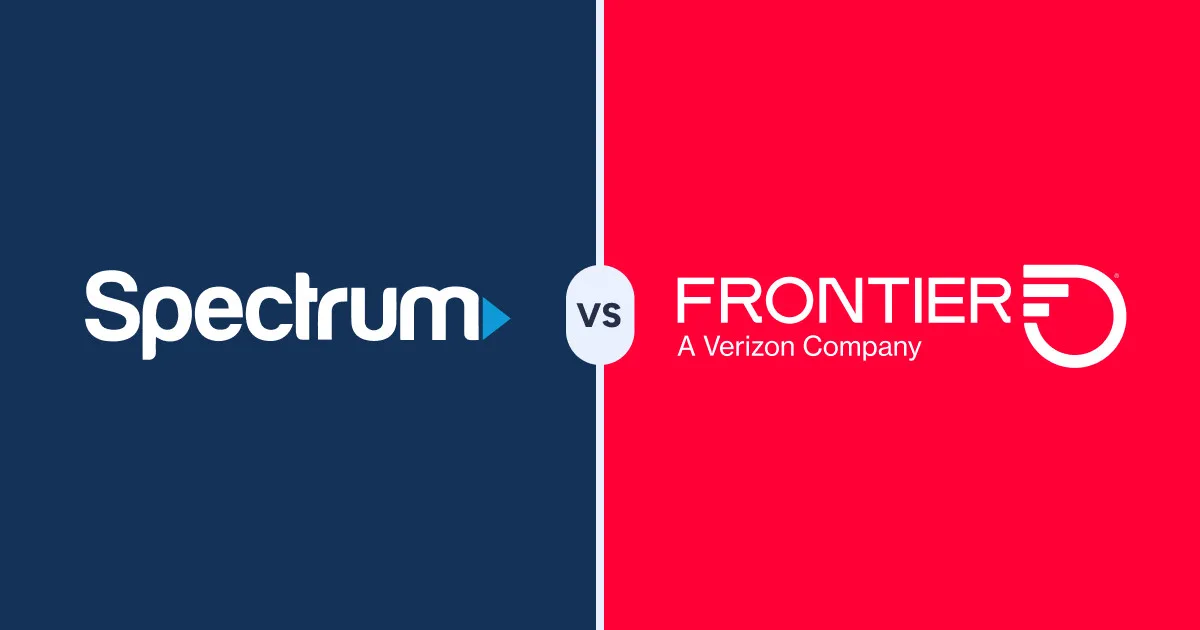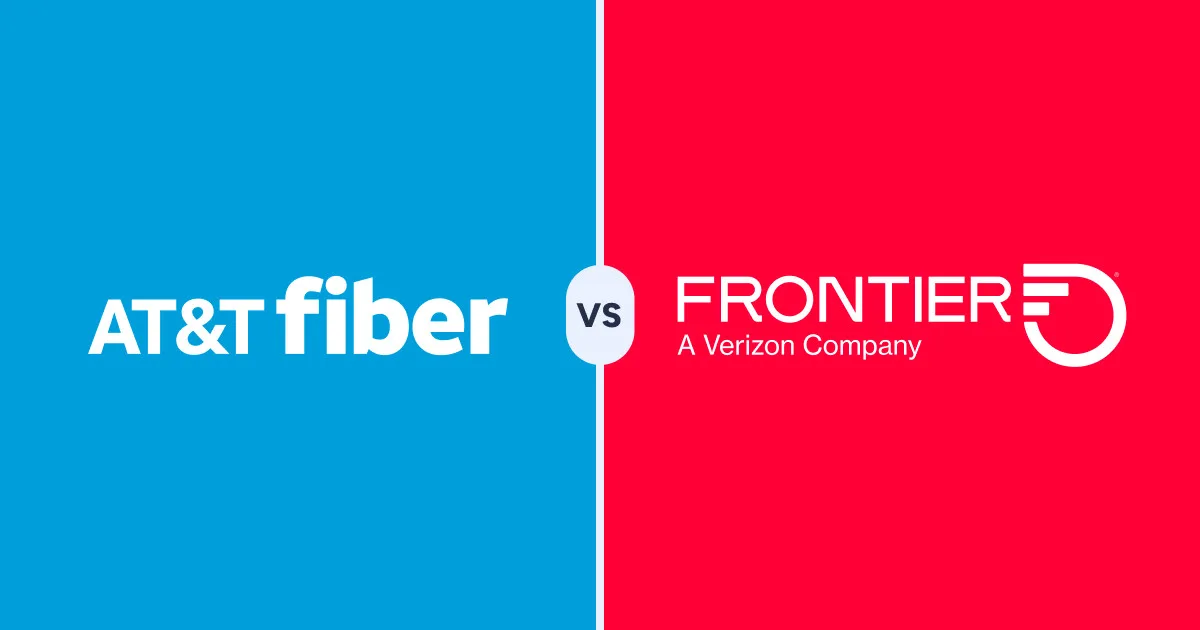CenturyLink vs. Cox
We compare two major internet providers on price, contracts, and extra perks.
Jan 14, 2026 | Share
Provider Comparisons (Versus)
-
Best for bargain prices
- Customer rating: 3.7 / 5
- Price: $55–$95/mo.for 24 mos.
- Speed: 300–2,000Mbps
- Internet type: Cable
- Contract: Annual (month-to-month options available)
-
Best for gigabit speeds
- Customer rating: 3.6 / 5
- Price: $50.00–$75.00/mo.†
- Speed: 40–940Mbps
- Internet type: Fiber, DSL
- Contract: Month to month
Data effective as of 10/09/2025. Prices and availability may vary by location and are subject to change.
See disclaimers.
Compare Cox vs. CenturyLink head to head
We think CenturyLink’s fiber internet plans provide the best value, provided one of the two fiber plans is a good fit for your needs. Each plan provides a lot of speed for the money and steers away from the price hikes and extra fees you might get with Cox. We absolutely do not recommend going for CenturyLink’s DSL over Cox’s cable internet (or any cable internet service). DSL isn’t up to the task of fulfilling modern bandwidth needs.
Cox has an advantage when it comes to mid-tier variety, with more plans to choose from. This makes it easier to find the perfect speed vs. price fit for your household. Additionally, Cox has better availability and higher customer service ratings than CenturyLink; so not only is the service easier to get, but you’ll likely have a better customer experience with Cox.
Pros and cons: Cox vs. CenturyLink
 Pros:
Pros:
- Wider availability of fast speeds
- Excellent customer service ratings
- Lots of bundle deals
 Cons:
Cons:
- Annual contracts
- Data caps on all plans
 Pros:
Pros:
- Unlimited data on all plans
- Excellent price on fiber plan
- No annual contracts
 Cons:
Cons:
- Slow speeds on DSL
- Limited fiber availability
Want to know if you can find Cox or CenturyLink in your area?
Find out by typing in your zip code below.
In this comparison:
Plans and pricing | Extra fees | Customer ratings | Bundles | Internet connection types | Data caps | Contracts | Installation | Availability | FAQ
In this comparison:
Plans and pricing: Cox vs. CenturyLink
Cox has a lot to choose from, including some impressive, budget-friendly packages. CenturyLink has just two packages—slow DSL or much faster fiber—but either way you get great perks like unlimited data and a month-to-month contract.
Cox plans and pricing
| Package | Price | Speed (download/upload) |
|---|---|---|
| Fast | $55/mo.* for 24 mos. | Up to 300Mbps/10Mbps |
| Go Even Faster | $85/mo.* for 24 mos. | Up to 500Mbps/10Mbps |
| Go Super Fast | $100/mo.* for 24 mos. | Up to 1,000Mbps/35Mbps |
| Go Beyond Fast | $115/mo.* for 24 mos. | Up to 2,000Mbps/100Mbps |
* Excludes taxes and fees. No annual contract. For 24 mos.
Fast speeds and wide availability—but slow uploads and big price hikes
Cox has great prices (at least up front) and a lot of options for customers to pick from. Most customers would be best off with the Fast or Go Even Faster plan. It’s Cox’s Go Even Faster plan which really fills the mid-tier hole in CenturyLink’s plan roster; you get an adequate speed at a good price. Cox also offers a prepaid plan called StraightUp Internet, which we like because it doesn’t require an annual term agreement and comes with a modem as part of the monthly fee.
The speeds you’ll get on a Cox plan range from a solid 300Mbps all the way up to 2,000Mbps. Depending on the plan you have, your bill could go up significantly or even double in price after 12 or 24 months of service. That might put some of the faster plans out of reach for some users, while the budget plans aren’t as plum of a deal after a year.
Cox (whose parent company is cable TV provider Cox Communications) also charges some extra fees, not all of which you’ll have to deal with from CenturyLink. Cox’s internet plans come with annual contracts. If you cancel your plan before the year is up, you’ll have to pay $10 for every month left on your bill. You can waive the term agreement, but it will cost you $10 more per month on your bill.
Cox low-cost internet plans
Cox has two great low-cost internet plans for individuals and families receiving government assistance:
ConnectAssist package : up to 100 Mbps for individuals receiving government assistance.
Connect2Compete package : up to 100 Mbps for families with children K-12 receiving government assistance.
CenturyLink plans and pricing
| Package | Price | Speed |
|---|---|---|
| Simply Unlimited Internet 40-80Mbps | $55.00/mo.† | Up to 80Mbps |
| Simply Unlimited Internet 100Mbps | $55.00/mo.* | Up to 100Mbps |
| Simply Unlimited Internet 140Mbps | $55.00/mo.* | Up to 140Mbps |
| CenturyLink Fiber Internet 500Mbps | $50.00/mo.‡ | 500Mbps |
| CenturyLink Fiber Gigabit Internet | $75.00/mo.§ | 940Mbps |
Data as of 03/15/2024. Offers and availability may vary by location and are subject to change. See disclaimers.
Fiber firepower or dozing DSL—take your pick
CenturyLink Fiber Internet plans both deliver superb speeds for the money—if it’s available in your area, then we say go for it. CenturyLink’s Fiber Gigabit plan costs about $35 per month less than Cox’s gigabit plan; it matches Cox on speed and goes one further by giving you symmetrical upload speeds, which is perfect for backing up files to the cloud, spending time on Zoom, and posting to social media.
The only drawback to CenturyLink’s fiber plan is that it has much lower availability compared to Cox. And CenturyLink’s other option, Simply Unlimited Internet, isn’t quite as rosy—a straightforward DSL plan, it gives you unlimited data but relatively sluggish speeds. Technically a DSL connection can hit 100 Mbps, but what you can get depends on what’s available in your area, which could be much slower. The price also isn’t the best considering the technical limitations, although it’s more or less similar to Cox’s budget-tier plans.

Deals and promotions: Cox vs. CenturyLink
- Get a price lock guarantee for up to five years and unlimited data when you combine an unlimited mobile line with select internet speeds
- Get a gift card worth $125 when you refer a friend to Cox and earn up to $600 per year
- Veterans and community servants with GovX eligibility can get a gift card worth up to $200 with certain Cox home internet plans
- You and a friend can get a $50–$100 reward when you refer them to CenturyLink, plus a $10 donation to your choice of charity
- Get free installation and included Wi-Fi equipment when you sign up for a fiber internet plan from CenturyLink with 940Mbps speeds
- Get $20 off the monthly fee for Bark with your CenturyLink internet subscription
Extra fees: Cox vs. CenturyLink
| Equipment fee | Installation fee | Other fees | |
|---|---|---|---|
| Cox | $14/mo. (Panoramic Wi-Fi) | $100.00 for professional install; free for self-install kit | $10/mo. (early termination), late fees based on state laws and regulations |
| CenturyLink | $15/mo. or $200 to own | $99.00 for professional install; free for self-install; $85.00 for phone jack install or DSL (if needed) | Late fee is $5 or a percentage of your total bill |
Data as of 3/15/2024. Offers and availability may vary by location and are subject to change.
Cox and CenturyLink both charge fairly standard fees. Cox’s rental modem is cheaper than CenturyLink’s. But Cox also has early termination fees for customers who cancel an internet plan before their annual term agreement is up.

Pro tip: Buy a router to save money
Renting a router from your provider is the easiest way to go, but it isn’t very cost effective—you’ll be running up rental costs till the end of time when you could simply buy your own equipment instead.
Buying your own modem and router also lets you choose more up-to-date equipment with additional speed, security, and parental features.
We have more info on buying routers farther down on this page, so take a gander for recommendations into the best equipment.
Customer ratings: Cox vs. CenturyLink
| Overall | 3.7/5 | 3.7/5 |
| Speed | 3.9/5 | 3.6/5 |
| Price | 3.4/5 | 3.4/5 |
| Reliability | 3.7/5 | 3.5/5 |
| Customer service | 3.8/5 | 3.5/5 |
Cox gets better ratings than CenturyLink in our annual customer satisfaction survey. Out of 15 providers examined, Cox gets average to above-average ratings for speed, reliability, customer service, and overall satisfaction. If you’re having any issues with Cox’s service, you can call its 24/7 tech support service or consult Cox’s live chat.
CenturyLink gets lower-ranking scores for overall satisfaction and most other categories. However, it gets fairly solid ratings for price, tying with Cox with a respectable 3.4 out of 5. CenturyLink’s customers likely give it high marks for price thanks to the provider’s affordable fiber options and the unlimited data that comes with its DSL plan.
Curious if you can get Cox or CenturyLink in your area?
Type your zip code below to find out.
Best TV and internet bundles
| Package | Internet speed | TV channels | Price | Details |
|---|---|---|---|---|
| Cox Go Even Faster + Contour TV Starter | 500Mbps | 75+ | $131/mo.* for 24 mos. | View Plans |
| Cox Go Even Faster + Contour TV Preferred | 500Mbps | 140+ | $185/mo.* for 24 mos. | View Plans |
| Cox Go Even Faster + Contour TV Ultimate | 500Mbps | 250+ | $222/mo.* for 24 mos. | View Plans |
* Prices include applicable monthly recurring service fees and applicable discounts. Excludes charges for existing Cox services. Additional one-time charges, activation fees and monthly equipment fees may apply. Prices do not include applicable taxes, usage-based charges, fees, and surcharges, which are subject to change. Prorated charges may appear on your bill if you change services before the bill cycle is complete.
CenturyLink doesn’t offer any bundle deals on internet and TV service. But Cox offers some solid bundles through its cable TV service, Cox Contour . Bundles give you a bit of a discount on TV and internet by letting you combine them. You can get a Cox bundle with anywhere from 75 up to 250 channels.
Internet types: Cox vs. CenturyLink
| Internet type | Details | |
|---|---|---|
|
| Cable | View Plans |
| Fiber, DSL |
Cox has cable internet, which runs over the same coaxial copper wiring as a cable TV network. Cable is fast, reliable, and widely available—our only quibble is that it doesn’t give you the fast upload speeds like you can get with fiber.
CenturyLink delivers both DSL and fiber internet. Fiber-optic internet is by far the best internet around, since it can hit the fastest speeds possible and is impervious to the kinds of electromagnetic interference that can hamper cable and DSL lines. It has a much lower availability nationwide, but hopefully that changes in the coming years.
DSL is an old-school type of internet that gives you a connection over the copper wiring of your landline phone network. It tops out at 100 Mbps—a fraction of the speed you can get over cable or fiber—so it’s best if you have minimal internet needs and if you don’t share your Wi-Fi with more than a few others in your household.
Data caps: Cox vs. CenturyLink
| Data cap | Overage fee | Details | |
|---|---|---|---|
|
| 1.25 TB | $10 per 50 GB | View Plans |
| Unlimited | N/A |
Cox has a 1.25TB cap on all of its internet plans. That’s a pretty generous cap—it will be just fine for most people—but you’ll need to be more budget-conscious of your data use if you live with a lot of people and like to stream video in 4K. The more users on your Wi-Fi, the faster you’ll burn through data, and overage charges can really add up.
CenturyLink, on the other hand, has no data caps—yay! That means you can spend all the time you want attending Zoom meetings, streaming movies and TV shows, and downloading files from your email. No need to worry about network slowdowns or overage charges.

Pro tip:
A lot of internet providers have raised their data caps over the years, and some don’t have data caps at all. See our guide to data caps to find out which providers give you data limits and which don’t.
Contracts: Cox vs. CenturyLink
| Contract length | Early termination fee | Details | |
|---|---|---|---|
|
| 1 yr., month-to-month option for $10/mo. extra | $10 per each month left on contract (up to $120 or $240 depending on length of contract) | View Plans |
| Month-to-month | N/A |
Data as of 3/15/2024. Offers and availability may vary by location and are subject to change.
CenturyLink has month-to-month contracts with annual term agreements. That means you can cancel your internet any time and you won’t have to pay an early termination fee, the dreaded fee that goes up with each month you have left on your contract.
Cox lets you choose between getting a package with an annual contract or without. If you cancel early on a plan with a contract, you’re on the hook for $10 for each month you have left in the agreement. If you pick a plan with no annual contract, well, you pay $10 extra per month on your bill. You’re not gaining much that way, so you may as well just sign up for the plan with the annual contract.
Installation: Cox vs. CenturyLink
| Installation options | Details | |
|---|---|---|
|
| $100.00 for professional install; free for self-install kit | View Plans |
| $99.00 for professional install; free for self-install; $85.00 for phone jack install or DSL (if needed) |
Data as of 3/15/2024. Offers and availability may vary by location and are subject to change.
The official price for professional installation from CenturyLink is $99—but lately the internet provider has been offering installation free of charge, with no extra charges added to your bill. However, you may need to pay an additional $85 to install a phone jack for DSL service if you don’t already have one in your house.
Cox charges $100 for professional installation, which means a technician will come over to your home and set everything up. You can save money by installing your new cable setup yourself—an Easy Connect self-install kit doesn’t cost anything extra.
Availability: Cox vs. CenturyLink
Cox is available in 29 states, and you can find CenturyLink in 36 states. CenturyLink has a much bigger US network overall—more than twice the size of Cox’s service footprint. But there’s a lot of overlap between the two providers, and the best way to figure out availability where you live is by using our zip code tool below.
Are Cox or CenturyLink available in your area?
Type in your zip code to see:
Final call: Cox vs. CenturyLink
If you want gigabit speeds, CenturyLink’s Fiber Gigabit plan is the clear winner. You get much faster upload speeds on that plan, along with unlimited data and no annual contract requirement. If 200Mbps is enough speed for your household, CenturyLink’s Fiber Intenet 200Mbps is also a better value than Cox’s budget plans.
If you’re looking for something more mid-range, Cox’s plans are worth a look. There’s no benefit to purchasing more internet speed than you need.
Fiber isn’t available everywhere, and CenturyLink’s DSL plan is a lot slower than what you can get from Cox. Internet customers who need robust speeds for work or entertainment (or both) would be wise to go with Cox if fiber isn’t available. Cox is also the best option if you want internet and TV in one bundle package—and its excellent customer service ratings mean it’s a solid bet for folks who aren’t super tech-oriented.
CenturyLink’s DSL plan isn’t the fastest thing out there, but it has some strengths. You won’t need to sign up for an annual contract, and you’ll get all the data you need. For most customers, we recommend the DSL plan only as an alternative to satellite internet.
Methodology
Our HighSpeedInternet.com editorial team bases our analyses on customer input from our annual customer satisfaction survey, results from our speed test tool, and proprietary internet provider data on speeds and pricing. To strengthen our research, we look closely at provider contracts to get hard-to-find information on price hikes, data caps, and extra fees, and we keep tabs on the latest news reports and online reviews. When applicable, we also rely on our personal experiences testing these services.
FAQ about Cox vs. CenturyLink
What’s the best router for Cox and CenturyLink?
Disclaimers
Product prices and availability are accurate as of the date/time indicated and are subject to change. Any price and availability information displayed on Amazon.com at the time of purchase will apply to the purchase of this product. HighSpeedInternet.com utilizes paid Amazon links.
CERTAIN CONTENT THAT APPEARS ON THIS SITE COMES FROM AMAZON. THIS CONTENT IS PROVIDED ‘AS IS’ AND IS SUBJECT TO CHANGE OR REMOVAL AT ANY TIME.
† CenturyLink
- Speed may not be available in your area. Paperless billing or prepay required. Additional taxes, fees, and surcharges apply. Get the fastest internet speed available at your location (max speed is up to 140 Mbps).
- Speed may not be available in your area. Maximum download/upload speed of up to 940 Mbps via a wired connection. Paperless billing required. Taxes and fees apply. Offer details. Offer includes professional installation at customer’s eligible location.
* Excludes taxes and fees. No annual contract. For 24 mos.
CenturyLink plans
* Speed may not be available in your area. Paperless billing or prepay required. Additional taxes, fees, and surcharges apply. Get the fastest internet speed available at your location (max speed is up to 100Mbps and 140 Mbps).
† Service is not available everywhere. Offer is available to qualifying customers only. Limited time offer. Paperless billing required. Additional taxes, fees, and surcharges apply.
‡ Service is not available everywhere. Offer is available to qualifying customers only. Limited time offer. Paperless billing required. Additional taxes, fees, and surcharges apply.
§ Speed may not be available in your area. Maximum download/upload speed of up to 940 Mbps via a wired connection. Paperless billing required. Taxes and fees apply. Offer details. Offer includes professional installation at customer’s eligible location.
Author -
Peter Holslin has more than a decade of experience working as a writer and freelance journalist. He graduated with a BA in liberal arts and journalism from New York City’s The New School University in 2008 and went on to contribute to publications like Rolling Stone, VICE, BuzzFeed, and countless others. At HighSpeedInternet.com, he focuses on covering 5G, nerding out about frequency bands and virtual RAN, and producing reviews on emerging services like 5G home internet. He also writes about internet providers and packages, hotspots, VPNs, and Wi-Fi troubleshooting.
Editor - Cara Haynes
Cara Haynes has been editing and writing in the digital space for seven years, and she's edited all things internet for HighSpeedInternet.com for five years. She graduated with a BA in English and a minor in editing from Brigham Young University. When she's not editing, she makes tech accessible through her freelance writing for brands like Pluralsight. She believes no one should feel lost in internet land and that a good internet connection significantly extends your life span.
